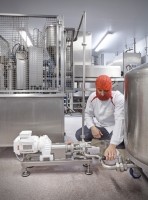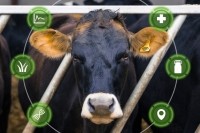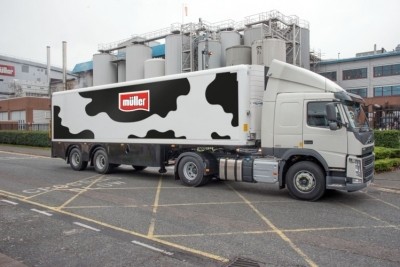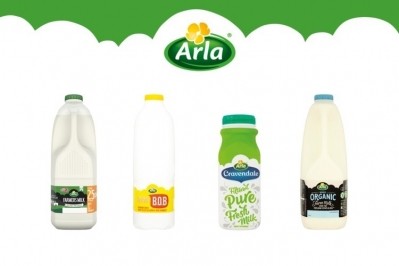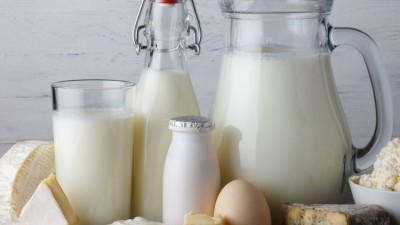Dairy processing
UK Dairy: Streamlined for success?
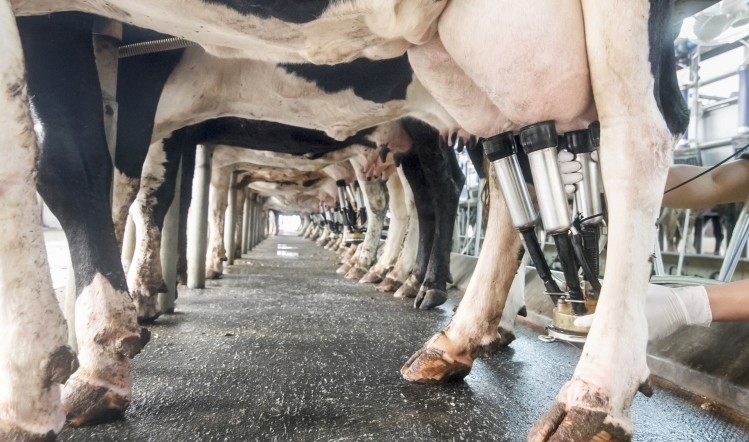
The uncertainties facing the UK’s dairy processing sector haven’t stopped individual players, large and small, from making significant investments in the past year.
Müller completed upgrade work at its fresh milk dairy facility at Belshill in Scotland, Dairy Crest announced plans to increase capacity at its Davidstow Creamery in Cornwall, and Arla Foods UK set out an ambitious strategy to make its whole business carbon-neutral by 2050. Meanwhile, at the other end of the scale, a host of smaller dairy companies have pledged to increase capacity and operational efficiency.
Many industry commentators would argue that such moves are not before time. It has long been acknowledged that dairy companies should, wherever possible, strive to adopt advanced technologies to achieve greater sustainability.
“This programme [Arla UK 360] is a vision of how we help drive sustainable businesses for UK dairy farmers”
Graham Wilkinson, Arla Foods UK
However, equally important is the need to improve relationships with their suppliers and retail customers to maintain a competitive edge, especially as the environmental standards they are expected to achieve will only intensify.
The dairy sector represents around 13% of Europe’s total food and drink industry and is one of the largest users of energy and water. In the UK, it has long faced criticism for the damage it causes to the environment. The sector also continues to face volatility in global milk markets, polarised levels of support for UK dairy farmers and the prospect of a new post-Brexit Agriculture Bill.
In response to these challenges, last autumn, dairy co-operative Arla Foods UK unveiled an initiative called Arla UK 360, to encourage better relationships with its dairy farmers, attract more investment and improve sustainability in the sector.
“This programme is a vision of how we help drive sustainable businesses for UK dairy farmers,” says Graham Wilkinson, head of agriculture at Arla Foods UK and strategic lead for the Arla UK 360 programme.
Arla operates the largest dairy in the UK, at Aylesbury in Buckinghamshire, which produces around one million litres of milk a year. It is also said to be the UK’s first large liquid milk processing facility to be net carbon-neutral. In February 2018, Arla announced plans to invest a further £33m at the facility.
The dairy boasts advanced technologies, uses renewable energy and harvests rainwater, while sending zero waste to landfill. Its Biothane Memthane wastewater treatment system, an anaerobic membrane bioreactor supplied by effluent treatment specialist Veolia, maximises renewable energy production while producing effluent that can be reused or discharged directly to sewer.
In another example of future-proofing, cheese producer Dairy Crest, which has just been acquired by Canadian dairy business Saputo in a £975m deal, recently submitted a £75m planning application to expand its Davidstow Creamery in north Cornwall to increase capacity by 40%. Much of this investment will focus on upgrading its effluent treatment facilities.
UK Dairy Roadmap
Cutting dairy plant emissions means investing in innovative processes. The UK Dairy Roadmap, an industry-wide initiative, has raised industrial energy efficiency in dairy processing by 18% since 2008 and is targeting a 30% cut in carbon footprint by 2025.
“Reducing operating costs is a top priority for dairy producers in a highly competitive industry. Higher production and energy efficiency contribute to that,” says Lilly Li, global environmental manager at Tetra Pak. “Most of the dairy producers we work with in the industry have quite ambitious targets for reducing their CO2 emissions. Typically, they are looking to achieve decreases of 20% to 50%.”
Separation, which typically accounts for a small but significant share of the energy consumption in dairy processing, is an area processors can target to reduce emissions, explains Li. In the long-term, investing in a low-energy separator can generate big efficiency gains, especially when accompanied by optimisation of other line equipment, she claims.
However, it’s not just about investment to reduce the sector’s environmental impact. Companies must also raise production efficiency and meet changing demand for new types of product and packaging. Take Müller, for example, which has completed a £15m investment to upgrade its fresh milk dairy facility at Belshill in Scotland. This work included the building of a new filling hall for cream products, two additional production lines and a new energy-efficient cooling system, plus extended chill space.
Small dairy processors have also released funds to improve their ability to grow. These include speciality cheesemaker Belton Farms, which acquired equipment from one of its former packers, Bridgehead Food Partners, to expand its processing capability. Meanwhile, Rochdale-based Lancashire Farm Dairies, a maker of yogurt from free-range milk, has spent more than £3.5m to double its production capacity.
Equipment investment
Elsewhere, Cornish Dairy Farm, which trades as Trewithen Dairy, has invested £2.5m in processing equipment, chilled ware-housing and its transport fleet following a 27% rise in turnover from £32.2m in 2017 to £41m last year. And Cornish clotted cream manufacturer AE Rodda & Son has installed an energy-efficient Certa 100 MasoSine pump from Watson-Marlow Fluid Technology for transferring a range of double- and single-cream pouring products from mobile storage tanks to the hopper of a new depositing machine.
But it’s not just about investing in stainless steel. To improve efficiencies in dairy processing, project management specialist Lorien Engineering Solutions has launched a software tool – originally developed for the brewing sector – that enables dairy producers to spot bottlenecks and drive growth.
Opti-Milk models milk and cream processing from intake to filling to demonstrate the theoretical capacity of a dairy, including cleaning-in-place. The detailed data provided can be used throughout the manufacturing process, from raw ingredients to the finished products.
“This tool is based on the principle that good, strategic decisions are made with good information,” says Lorien project manager Nicholas Jones. “By adding empirical overall equipment effectiveness figures and known restrictions, we can show maximum capacities. When a step-change in production capacity is planned, Opti-Milk highlights the pinch points in the process and identifies the extra plant and equipment needed.”
Aided by improvements in technology, today’s dairy processors are well-placed to meet the key sector demands of sustainability and efficiency – boosting their reputation throughout the supply chain.
Data portal for sustainable tech
Sustainability initiative Food Forward and its partners have received a £60,000 ‘pump-priming’ funding from Innovate UK, the operating arm of the Government’s Technology Strategy Board, to develop a sustainable technology data portal for smaller UK dairy manufacturers.
Supported by researchers at the University of Surrey, Food Forward was awarded the funding to build a data platform that will provide a new tool called Dairy Forward, designed to match UK manufacturers of dairy foods with sustainable technologies, including de-packaging machines, reverse osmosis and LED lighting.
Using the data collected, Dairy Forward will be able to compare how producers of cheese, butter, yogurt and other dairy products consume energy and produce waste. It will also match sites with solar power purchase agreements, anaerobic digesters and energy storage technologies.
Companies adopting these technologies will increase their protection long-term against volatile input costs and help them make better use of wasted resources, Dairy Forward claims.
“By cutting wasteful primary resource costs, the dairy sector can enjoy better resource productivity,” says Angela Druckman, professor of sustainable consumption and production at the University of Surrey. “That means the same block of cheese, but for a lower price and smaller environmental footprint.”
Conrad Young, managing director of Food Forward, explains that pilot research with groups of dairy companies is currently underway, with a view to launching a ‘proof of concept’ at the end of May.
At that point, he hopes to attract investment for the next stage of development.
“The platform is a web-based downloadable app that should be very simple to use,” says Young. “That will enable small and medium-sized businesses to focus their attention on making investments in sustainable technology.”
